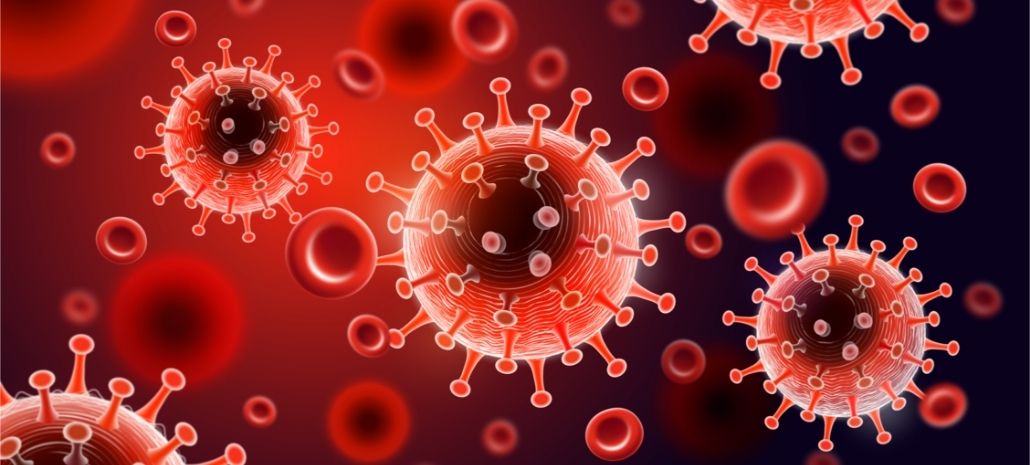Dr Manish Singhal - The best Cancer Specialist in Delhi
Myeloid Leukemia Treatment During And After Covid-19 Lockdowns

During the lockdown period due to Covid-19, there was a decrease in most of the non-covid healthcare services. Thus affecting the patients who require urgent access to medical services. Patients who are suffering from cancer are predominantly affected. The situation has become even worse for patients suffering from Acute Myeloid Leukaemia.
The article talks about how the Acute Myeloid Leukemia treatment has been affected by the Covid-19 lockdown. Also, a detailed discussion is done to understand the reasons behind the difference in the treatment of AML.
What is Acute Myeloid Leukemia?
Acute Myeloid Leukemia or AML is a type of cancer that occurs in the blood and bone marrow due to an excess of immature white blood cells. It has a very fast progression because the myeloid cells interfere with the production of normal WBCs, RBCs and Platelets.
What Happened in the Lockdown? – The study.
Dr Asif Iqbal at the Annual Meeting of the Society of Hematologic Oncology (SOHO) presented a study of patients with AML in India. This study showed that those patients who had been administered induction during the Covid-19 lockdown had a higher mortality rate than the patients who received the induction after the lockdown was lifted.
The research team tried to determine the various factors as to why such a phenomenon occurred as there was no difference in the medical treatment being administered to the patients. One of the possibilities they discussed was the existence of the travel ban.
The two groups of patients (during lockdown and post lockdown) under observation were given 2 cycles of induction with Intensive chemotherapy and Low-intensity chemotherapy. The age and sex distribution and other baseline characteristics are very generally similar between the two groups.
For easier understanding, Let us call the group in the lockdown Group A and the one post lockdown – Group B.
The one significant difference between Group A and Group B was the blood groups of the patients. In group A, the percentage of patients with the B-positive blood group was higher (31.8% VS 3.2%). And in group B, patients with AB-positive blood group were higher (22.6% VS 9.1%).
The major cause that can be attributed to this is the lack of blood in blood banks. As mentioned before, AML is a cancer of the bone and blood thus one of the major treatments which are administered to patients with AML is a blood transfusion. Due to the lack of blood, treatments dived.
In group A, 45.5% of patients were given ICT and 54.5% were given LCT. In group B, 45.2% received ICT and 51.6% had LCT.
The Results and Reports
The complete response rate or the CR rate for the first induction cycle was better for group A – 40.9% than it was for group B – 25.8%. While there was a notable difference in the first induction between the two groups, the opposite was true for the second induction. Group A’s CR rate was 35.7% and Group B’s was 17.6%.
The mortality rate was notably higher in Group A in comparison to Group B (36.4% VS 45.2%). It was a blatant fact that both of these statistics were considerably higher than the 16.9% in 2019.
The most common cause of death in both groups was septicemia or commonly known as sepsis which is a medical term for blood poisoning caused by bacteria (40.9% VS 22.6%). Two patients in both groups died of bleeding. 1 patient in group A while 2 patients in group B died of the Covid-19 virus.
This entire study was covered and presented at the SOHO conference 2021.
Why Did these Differences Occur?
The Covid-19 pandemic had rapid and disruptive effects, not only medically but socially, no one was prepared for it and thus it affected the medical care of patients. There are many attributes and factors caused by the pandemic lockdown that have to be considered while trying to analyse the above-given data like the social, financial, political as well as medical disturbances.
Overall the outcomes in Group A were worse than those before the pandemic. However, group B had better outcomes supported by faster partial as well as complete response rates and it also reported fewer induction caused deaths. The outcomes can also be attributed to the coronavirus itself, the lack of blood caused by the lockdown and the availability of other medicines and medical care.
It is vital to note that this was a retrospective study conducted by Dr Asif Iqbal and his colleagues. Both groups A and Group B were from 2020 and the study was presented at the Society of Hematologic Oncology 2021.
While there are lots of numbers and outcomes to be considered, it is evident that the Covid-19 pandemic caused a major upheaval in the medical world. There might exist some factors that were lost in the data or during observation, some that might not have been detected in the first place. If you are looking for a Leukemia Cancer doctor in Noida, Cancer specialist Dr Manish Singhal is popularly known to be the best man to go to for Lymphoma cancer treatment in Noida. In the times of Covid-19, he has been conducting special video consultations and his clinic has been taking special precautions as per the guidelines. He is also a member of SOHO- the Society of Haematology Oncology.



